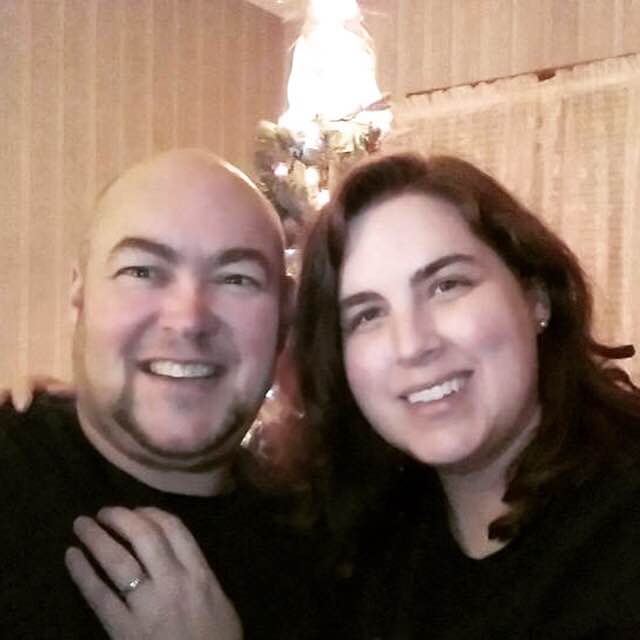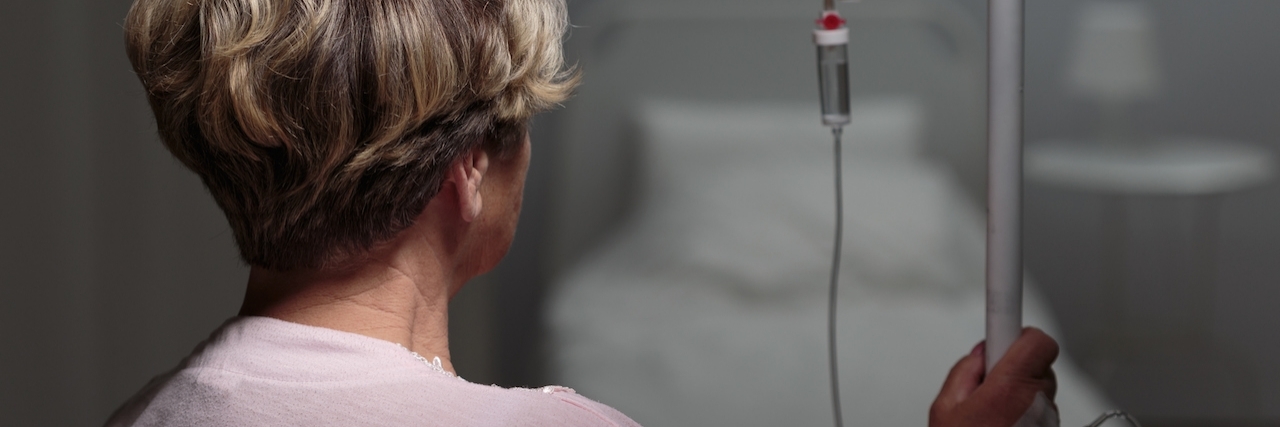My Disease Affects One in a Million – This Is What It’s Like Trying to Get Treated

After a twenty-year medical odyssey fraught with misdiagnoses and medical neglect, my mobility progressively deteriorated with body-wide, intractable muscular rigidity, seizing, spasming and acute pain.
My husband and I fought to be referred to UCLA Neuromuscular Clinic, where I finally was diagnosed with Stiff-person syndrome (SPS), a rare neuromuscular disease that affects one in a million people. There is no cure, aside from some miracles with the financially exclusive stem cell transplant. The plasma-based therapies utilized in an attempt to alleviate SPS are atrociously expensive. Insurance companies, like the one I had upon diagnosis, fight to deny them. For lucky SPS patients who access plasma infusions, they are even luckier if they help at all. I rejoice for these patients.
I am angry for so many SPS warriors like myself who are barred by insurance companies from receiving plasma infusions and whose neurologists doubt they would work anyway. So, we are left with pills to try to control seizing and spasming — the most effective being high doses of Diazepam along with a cocktail of other meds, including pain medications, which many are being denied due to the recent CDC guidelines. The pain medications are essential to our mobility and independence. SPS spastic exertions are so severe they break and fracture bones; they tear and rip muscle fibers. You can see why recent previous medical protocol required pain medication for SPS — it is essential to treating this rare disease.
When I begged a doctor to refer me to a neurologist based on my test and imaging results and knowledge of my own body, I was told I’d have to look into specialty clinics in other states. I was given Diazepam and Percocet then and told “good luck.” My disease was “too complicated” to spend anymore time on, as far as several doctors were concerned. I had to take these meds (and still do) to prevent living in the ER — what many of us are forced to do due to a lack of better treatment options.
My husband and I took it upon ourselves, along with the generosity of our friends through fundraising, to relocate to Southern CA to seek out specialty neurology. We battled for nearly two years to obtain a specialty referral to the UCLA Clinic. They finally diagnosed me in November 2014. My illness began affecting me while I was attending college in November 1995.
No one should ever have to wait two decades and endure potential medical endangerment with various drugs, tests and procedures just to obtain an accurate diagnosis. Several doctors also took out their frustrations on me since they had no idea what they were dealing with. I wish they would have listened to me instead of ridiculing me. Now I dread each medical visit, during which I have to explain my rare disease to the doctor, even when I am armed with documentation. I know I am not the only rare patient suffering this medical drama. The disease is difficult enough. I miss a doctor/patient relationship based on trust and mutual understanding. To have such a relationship, it is essential to listen effectively on both sides.
My husband and I returned to the Northeast and just began my sixth journey with a medical system, in hopes it will help me, since I now require a wheelchair and fight to be granted a home helper. We already are fighting to expedite my neurology appointment, so I don’t have to sit for two months without any treatment or pain control.
SPS is an orphan disease at the very bottom of the medical research barrel, so not many doctors know much at all about it. Primary doctors in particular are reluctant to believe and trust their patients who have lived with SPS for years, even with clinical summaries, records and pharmacy histories.
No one deserves prolonged suffering. We do not deserve to feel our bodies erode day by day without proper or any treatment. We fight for medical cooperation and compassion.
We need to empower doctors with rare disease knowledge and keep fighting for funding for research. Then, doctors will be more likely to care about treating SPS patients. Then, doctors will have more of an inclination to be medical advocates instead of adversaries. Only then, can we receive an accurate diagnosis and some resemblance of treatment. Only then, can we shatter the barriers to lasting relief and dare to hope for a definitive cure for SPS.
The Mighty is asking the following: What is a part of your or a loved one’s disease, disability or mental illness that no one is aware of? Why is it time to start talking about it? Check out our Submit a Story page for more about our submission guidelines.

